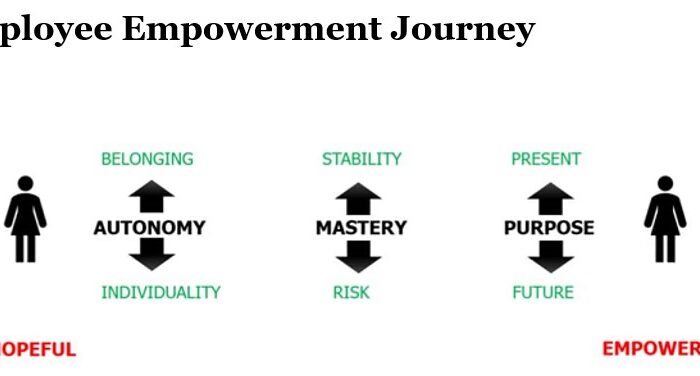The 8 Questions to Ask When Forming a Business Partnership – Part One. In Blackboard Fridays Episode 44, Jacob talks about Vision, Growth Planning, Leadership, & Culture. Need this implemented into your business? Talk to the international business advisor who can do exactly that – Contact Jacob, Learn More, or Subscribe for Updates.
There’s a phone call or email I receive most weeks, and it still excites me: somebody (client, alumni, or a completely new introduction) who has a fresh idea for their new business. As you saw in Episode 25, I can be a practical ‘wet blanket’ in encouraging these people to really test their new idea.
And that practical approach – built from my experience over many years – extends to the next part of their conversation: “I have a business partner ready to go!”
There are many reasons why businesses with multiple founders work better than solopreneurs … and many people in successful businesses who will tell you never to take on a partner at all. So how do you know if having a business partner is right for you?
More importantly, how do you know if this person (or group) is the right person to partner with?
- Watch today’s episode, as we dive into the first 4 of 8 questions I encourage potential partners to ask each other, with some case studies.
- These are the key strategic questions where you need to know the answers are aligned.
- Next week we’ll ask the 4 operational questions.
And as with testing your new business idea, these are just as applicable to a new start-up as they are to an existing business looking to bring on partners, or open new product lines or geographic channels using a partnership model.
Who is Jacob Aldridge, Business Coach?
“The smart and quirky advisor who gets sh!t done in business.”
Since April 2006, I’ve been an international business advisor providing bespoke solutions for privately-owned businesses with 12-96 employees.
At this stage you have proven your business model, but you’re struggling to turn aspirations into day-to-day reality. You are still responsible for all 28 areas of your business, but you don’t have the time or budget to hire 28 different experts.
You need 1 person you can trust who can show you how everything in your business is connected, and which areas to prioritise first.
That’s me.
Learn more here. Or Let’s chat.
Transcript
One of the great privileges I have as a business advisor and coach is that when people have a new business idea, they often pick up the phone, give me a call, jump online and have a conversation.
I love those conversations. I love the excitement, the fresh energy of that pre-startup business.
Some times it’s somebody going into business on their own for the first time. Often it’s a client of mine who’s been successful with their existing business and is now looking at how they can create new products, new businesses, and create that wealth portfolio. Often, one of the key conversations comes back to forming some kind of partnership.
And I’m not talking structural Partnership versus Company versus Trust kind of things. I’m talking about two or more people deciding to go into business together – and I say there are eight key questions that you need to ask and get alignment on before you want to go into business.
Whether that’s a new business, a business with your spouse, or bringing people up through the ranks of your business so that they become co-owners or partners in that business – there are 8 questions you need to commit to answering before becoming business partners.
In this week’s episode, we’re going to focus on the four strategic questions. Then next week we’ll talk about the four operational questions to encompass all a those key questions I recommend when forming a business partnership.
Partnership Question 1: What is the Commercial Vision for this enterprise?
The first question may seem really obvious, but it often is overlooked. What is the Commercial Vision that each of you has for this business?
I’ll give you an example of where this worked really well. This was a client of mine who was setting up a new business, and was bringing on an additional partner. Now this was a business opportunity that had a lot of potential but both of them felt the opportunity was really time limited.
The technology was going to catch up with this business idea in the next five or ten years. This business opportunity was very much about getting in, grabbing a chunk of market share, and profiting as much as they could in that time before technology took over.
They both agreed that the Vision for the business was about $1.5 million in revenue per year. Perfect. I give that a great big tick, and move to the next question.
But can you imagine if one of them thought it was a $1.5 million dollar business and the other thought it was a $15 million dollar business or a $100 million business? Differences in that vision would have led to drastically different decisions in terms of recruitment, marketing, funding, operations; that business owner, if they were right about it just being a smaller business, would have been completely overwhelmed. None of the profit they wanted to achieve would have been realised, because they would have been investing for a bigger business that would never have come.
You may think it’s great if one of the partners has a much much bigger vision than the others. But in reality that means there’s a lack of alignment, and you need to get to the source of why there’s that confusion. Different Visions at the highest layer of context lead to different choices all the way down.
Partnership Question 2: What are the Cultural Values we choose for this enterprise?
Once you’ve agreed a clear and aligned Commercial Vision, the next thing to ask is “What are our Cultural Values?”.
It ought to go without saying – but it really doesn’t in business – that you don’t want to form a partnership with someone you don’t want to work with. If you wouldn’t put your best clients, your greatest relationships, in a room one-on-one with that business partner … then run a hundred miles, because no matter how great the commercial thing might be, if it’s not a cultural match it’s not going to work.
Have the conversation remembering that culture is about the experience you’re creating within the work environment every single day – not just the one offs. What are your values and are they aligned? Spend time on this – and this is one where I, as a coach, will often get called in because it’s a lot easier to have that external facilitator asking some of those tough values-based questions.
Partnership Question 3: Are your natural Behavioural preferences complementary?
If you’ve got the aligned Commercial and Cultural big ticks, the third question is to understand your different leadership styles, your behavioural preferences.
Let me give you another case study, this time of a business partnership that really didn’t work.
So I ran these prospective Partners through the behavioural suite that I use called Shirlaws Compass. We identified two key differences between these two business partners.
- One of them was quite Fast Paced, which meant they were jumping from idea to idea very very quickly
- That partner also had the higher Risk Appetite of the two.
In and of itself, that wouldn’t cause any problems. It’s just something to be aware of, something to have conversations about and manage the problem. In this situation, the Fast Paced Risk taker was the majority partner – he was 90% of shareholding in the business. His partner, who was lower risk and slower-paced, was 10% of the business. So, really from a structural control perspective, the second partner didn’t have a lot of say.
Thankfully, they had gone through the structure process and hadn’t gone all the way down where it was going to be a messy extraction. That business partnership lasted less than six months. The incoming partner, while they brought a lot of value to the business, was never able to keep up with the fast-paced, high risk big decisions that the majority shareholder was making.
Not a right or wrong but if the majority shareholder is going to continue to behave as if they’re a sole trader then it makes partnership very difficult where those behavioural preferences are not aligned.
Partnership Question 3: Who has which preferences regarding Income, Equity, and Control?
The fourth and final key strategic question on forming a business partnership is understanding from a structural perspective what your different preferences are.
I often talk about “Income, Equity, and Control”. For you, forming a business partnership, which of those three is most important? Are you looking to get as much income out of this as possible? Is it equity? Or is it control?
A lot of people, when they’re forming a business partnership, conflate equity and control. They think that because they’ve got 51% of the business, that gives them more control. In reality, when you understand structural preferences, you can do deals all over the shop and that doesn’t need to be the case. If you really want to keep control, that doesn’t mean you need to keep a majority of the equity.
You’ve got to be clear though on which of those – income, equity, or control you want? And which is most important to your partners? Because if you all want exactly the same thing, that can cause some friction when it comes to dividing the pie.
Let me give you a great example of where I’ve seen this really work. It was a business where the founding owner was a leader in their field, but he was getting frustrated by the fact that senior staff would work for 5-10 years, get upskilled, become leaders in the field themselves … and then go and start their own competitor business.
Those individuals, the senior leaders that were leaving to start their own business, had shifted their preferences from Income (when they first took the job) to Equity and Control (wanting to have their own business).
Now, despite this frustration, the core business was running well. He didn’t need to sell them a portion of his existing business – that might secure their tenure, but it would also dilute his commercial vision. But with coaching he saw the opportunity to give them what they needed, which was the equity and the control, without needing them to go and form competition.
This client would actually sit down with those senior managers at a time when he realized they were about to go off and start their own business … and he would offer them a business partnership conversation.
- Imagine if instead of setting up in competition with me, I helped bank roll you to go out there and start your own business
- I’ll gift you 25% or 50% of that business from the start
- And we will agree some benchmarks that allow you to buy in even more over time
- This way you, my senior manager looking to the next next step of your career, can go out there and control your own business without needing to take on all of the risks of a startup.
This business owner shifted the pattern. He went from a market where his senior people were leaving and becoming competitors, to starting to create that portfolio of businesses in his industry each led by very capable well-trained individuals. And where he retains a portion of that equity!
That shift, that conversation changed his worldview, has helped create successful businesses for a number of his staff who on their own, in the absence of at that partnership, may not have been as successful.
In Summary
Underlying all of these four questions, Commercial Vision, Cultural Values, Leadership Behaviours, and Structural Preferences is a need to be very open and honest with your communication.
Ultimately, if you don’t feel, or if your potential business partner doesn’t feel that they can be open about what they want out of this business, then that is going to manifest itself in major issues further down the track.
If you can’t answer these questions, if you can’t even have this conversation upfront, the business is not going to work. Save yourself the time.
If you can have that conversation, then find and share the answer to these questions as they apply to your unique partnership mix and business opportunity.
And I’ll see you next week to talk about the operational questions every new partnership must ask.
Next Steps
Want to learn more about how this can apply to your business? It costs nothing to chat:
- Email me jacob@jacobaldridge.com (I read them all)
- Call, Text, or WhatsApp me +61 427 151 181
- Or just Subscribe https://jacobaldridge.com/about/subscribe-to-jacob-aldridge-com/ to stay in touch





[…] Episode 44, 8 Questions to Ask when Forming a Business Partnership – Part 1 – https://jacobaldridge.com/business/the-8-questions-to-ask-when-forming-a-business-partnership-part-o… […]
[…] last week’s Episode we asked – with some case studies – the 4 strategic questions potential business […]
[…] Blackboard Friday episodes 44 [https://jacobaldridge.com/business/the-8-questions-to-ask-when-forming-a-business-partnership-part-o…], 45 […]